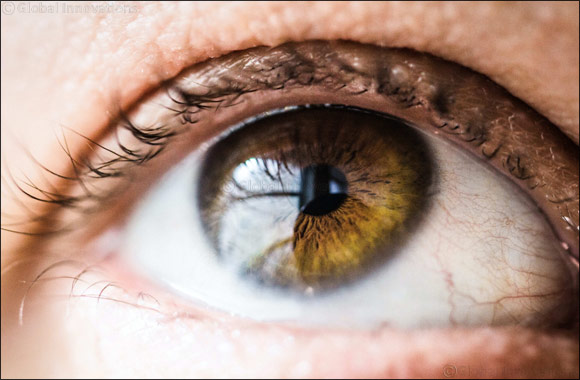
Experts at MEHD Warn Residents of the Risk of Developing Cataracts
June 17 2020 Dubai, UAE: In line with Cataract Awareness Month (June 2020), Moorfields Eye Hospital Dubai’s expert team of ophthalmologist warn MENA residents of the two major risk factors for cataracts: age and diabetes.
Cataract, the leading cause of blindness in the world, affects roughly 25% of the population living in the MENA region. An ageing population combined with the high incidence of diabetes raises concerns and yields an environment with an elevated prevalence of cataracts across the MENA region.
Cataract is generally a slow age-related process where the transparent natural lens gradually loses its transparency resulting in cloudy or dull vision. The word ‘cataract’ comes from the Greek word meaning ‘waterfall’ – in Arabic it translates into ‘white water’ as with advancing severity, the lens appears white.
Symptoms
Initially, there may be no symptoms of cataracts, but over time the quality of the vision deteriorates. The sharpness of vision may be lost, and colours may appear washed out and lack definition. Glare, myopia (near-sightedness), and rapid changes in the spectacle prescription are key indicators a patient may be developing cataracts.
Treatment
Intraocular lens implants a treatment for cataracts is a highly effective yet simple procedure that has become one of the most common and most successful procedures performed worldwide. The procedure causes minimal discomfort and takes about 15-20 minutes to be completed and often can be done under local anaesthesia. During procedure, the cloudy lens is removed, and an artificial lens is implanted.
While, modern medicine has provided a hassle-free solution to this condition, if left untreated cataract can become very dense and surgery becomes riskier. In severe cases, there can be inflammation and a rise in eye pressure, which can damage the vision. Therefore, it is advised that patients over 40 have regular screenings for cataracts so that the condition can be treated promptly.
Risk (Age & Diabetes)
Age
Most patients become aware of cataracts after the age of 60. However, cataracts can develop much earlier and affect people of any age, including children and young adults. However, in adults, symptoms may not appear until the age of 40. The causes are not clear but could include hereditary factors, illness, eye trauma and smoking.
With this in mind, cataracts still disproportionally affect people over the age of 65. As the region’s naturally ageing population grows, it will lead to more age-related health issues, including cataracts. Although there is no way to prevent age-related cataracts, a healthy lifestyle – including healthy eating, not smoking and wearing sunglasses with proper UV blocking filters – can slow their progression.
Diabetes
The risk of cataracts is much higher amongst the large community of people with diabetes in the GCC – those with type 2 diabetes statistically face a 60% greater risk of developing cataracts and research has also shown that people with type 2 diabetes who lower their HbA1c level by just 1% can reduce their risk of cataracts by 19%.
In a 2018 study published in the journal, Eye, research found that the risk of cataracts in diabetic patients is double that of individuals who do not have the disease. This relates to the connection between uncontrolled glucose and the impact it has on the nourishing properties of the aqueous humor (watery fluid located in the anterior and posterior chambers of the eye), which can cause lens opacity.
The good news is that cataracts can be treated very effectively with modern surgery to remove the cloudy lens and insert a high-quality lens implant and once treated, cataracts do not return. While many factors contribute to cataracts, age and diabetes are the most prominent. The best way to prevent early-onset cataracts is to monitor your blood sugar and have regular check-ups with your eye doctor.
Home >> Healthcare & Medicine Section
KANZ Jewels Hosts Spectacular Golden Evening with Bollywood Sensation Padma Shri ...
Lg Brings 'Reinventing Together' Theme To The UAE For Two-Day Middle East And Af ...
UAE announces US$50 million commitment to the Lives and Livelihoods Fund 2.0 to ...
DOMOTEX Middle East 2024 Kicks Off in Dubai, Set to Transform the Regional Floor ...
Dubai Culture supports UAE's participation in Venice Biennale
UAE and Oman establish investment partnerships worth AED 129 billion to deepen c ...
Manchester City Players In Starting Line-Up For Etihad At Zayed International Ai ...
Uruguay bullish about GCC beef and lamb export prospects
Dubai Airports back to normal operations
MEDCARE WOMEN & CHILDREN HOSPITAL leads the way in advanced Gene Therapy with 10 ...
FIA President Attends Top-level Meetings in China in Light of the First Chinese ...
Ministry of Economy to launch ‘National Forum for SMEs - Government Procurement' ...
4500 Experts and Enthusiasts Converge in Dubai for the Machines Can See 2024
Hitachi Energy and SP Energy Networks to boost renewable energy flow
Union Coop Supports the Community Through Weather Adversity
Ministry of Finance's Federal Suppliers Register Enhances Government Procurement
What's Your Flayva? Here's Ten Tasty Dishes From Around The World, Each For Unde ...
Hysek reveals iconic timepieces at Watches & Wonders 2024
Second Industrialists Career Exhibition launches in Abu Dhabi in presence of HE ...
